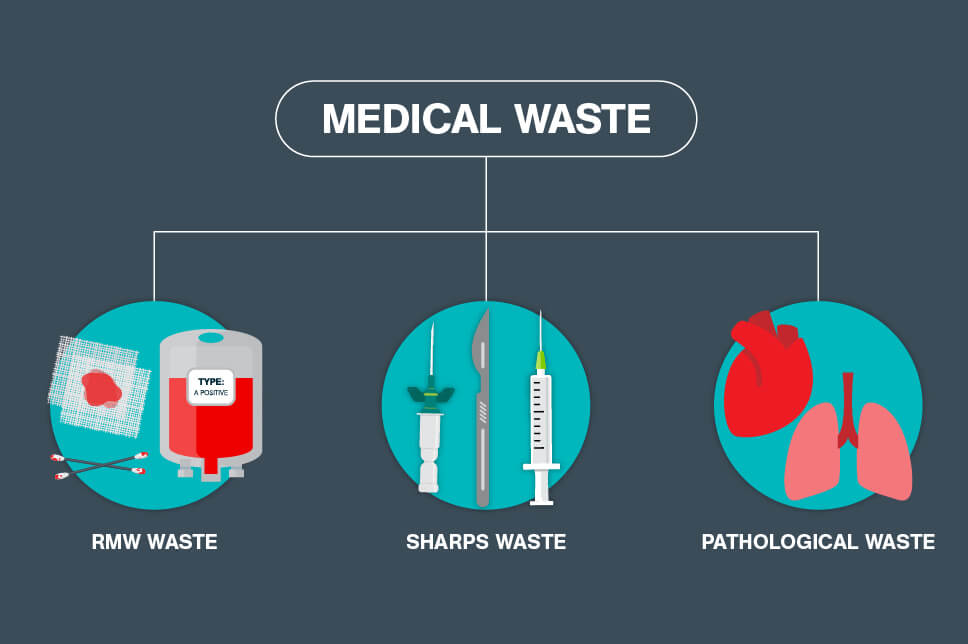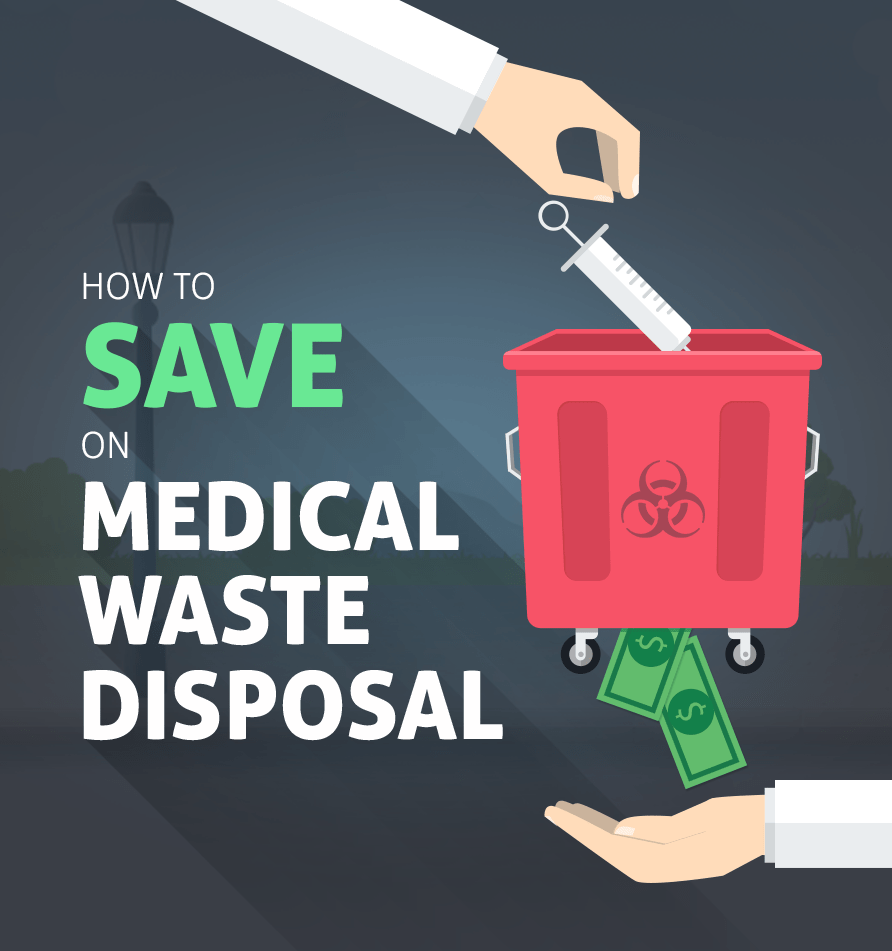Turnkey Medical Waste Removal Service: Seamless Disposal for Healthcare Facilities
Wiki Article
Appropriate Disposal Methods for Medical Waste
Appropriate disposal methods for medical waste are of utmost value in making certain the security of both medical care workers and the general public. The suitable handling and disposal of medical waste is crucial to protect against the spread of transmittable illness and the contamination of the setting. This introduction will discover the relevance of correct medical waste disposal, give guidelines for taking care of various kinds of waste, and emphasize the requirement for medical care facilities to embrace ideal methods.Importance of Appropriate Clinical Garbage Disposal
Appropriate clinical garbage disposal is of utmost importance in order to protect against the spread of infections and safeguard public health. Medical waste refers to any type of waste created throughout medical treatments or from the health care market. This waste can have transmittable materials, such as blood or bodily fluids, sharps, pharmaceuticals, and other potentially unsafe compounds. Otherwise thrown away appropriately, medical waste can posture significant risks to medical care workers, patients, and the basic public.Among the key factors for proper medical garbage disposal is to prevent the spread of infections. Clinical waste can harbor numerous microorganisms, including microorganisms, viruses, and various other microbes that can create illness. Improper disposal can lead to the contamination of surfaces, water sources, and air, enhancing the risk of infections. By securely taking care of medical waste, the opportunities of exposure to these virus are considerably decreased, making certain the safety and security of healthcare employees, individuals, and the neighborhood at huge.
In addition, correct medical waste disposal is crucial for safeguarding public wellness. By adhering to correct disposal techniques, such as segregation, therapy, and containment, we can decrease the potential dangers linked with medical waste and protect the well-being of the neighborhood.
Handling and Disposing of Sharps
When it comes to the handling and disposal of sharps, adherence to appropriate procedures is important for guaranteeing the safety and security of healthcare workers and stopping the threat of injury or infection. Sharps include needles, syringes, lancets, and various other things with the potential to reduce the skin or puncture. Due to their prospective to send bloodborne virus, such as HIV and liver disease B and C, it is crucial to get rid of and handle of sharps appropriately.
Disposal of sharps containers should adhere to neighborhood guidelines and standards (WasteX Medical Waste Disposal). It is necessary to never ever summarize needles or bend, break, or get rid of needles from syringes. When the container is full, it should be safely sealed and dealt with according to local policies. It is best to make use of licensed medical garbage disposal services that focus on the appropriate handling and disposal of sharps to guarantee conformity with regulations and lessen threats to health care workers and the setting.
Standards for Infectious Waste Disposal
Medical care facilities should stick to strict standards for the disposal of infectious waste to avoid the spread of microorganisms and secure public health and wellness. Infectious waste, also referred to as biomedical or biohazardous waste, refers to materials that are potentially contaminated with contagious representatives or various other dangerous compounds. These materials include blood-soaked bandages, made use of cultures, gloves, and specimens. Appropriate disposal of transmittable waste is essential to make certain the safety and wellness of healthcare workers, clients, and the basic public.The standards for contagious waste disposal differ depending on the country and local guidelines, yet there are some common practices that medical care centers need to adhere to. All contagious waste must be segregated from other kinds of waste at the factor of generation. This helps protect against cross-contamination and guarantees that the waste can be dealt with suitably. Infectious waste should be stored in watertight, puncture-resistant containers that are clearly labeled with the biohazard icon. These containers need to be hugged when not being used to decrease the danger of direct exposure. Finally, contagious waste must be transported and dealt with by certified waste monitoring companies that specialize in handling biomedical waste.
It is essential for health care facilities to have extensive training programs in position to educate team on the correct procedures for transmittable garbage disposal. This includes training on waste segregation, storage, and taking care of strategies. By complying with these guidelines, medical care centers can efficiently take care of contagious waste, lower the risk of infections, and shield public health and wellness.
Best Practices for Pharmaceutical Waste Disposal
Pharmaceutical garbage disposal must constantly be performed consistently and based on professional guidelines. Proper administration of pharmaceutical waste is important this to shield public health and the environment. Pharmaceuticals can posture a considerable danger if not thrown away appropriately, as they might pollute water resources, damage water life, and even add to the advancement of antibiotic resistance.One of the most effective methods for pharmaceutical waste disposal is to establish a designated collection system within healthcare centers. medical waste removal service. This system needs to consist of different containers for different sorts of pharmaceutical waste, such as ended medications, extra medicines, and infected materials. These containers should be plainly identified and found in quickly obtainable locations to motivate correct disposal by medical care professionals
In addition, it is crucial to inform health care staff concerning the correct handling and disposal of pharmaceutical waste. Educating programs should concentrate on recognizing different kinds of pharmaceutical waste, understanding the linked risks, and following the appropriate disposal treatments. Routine reminders and updates must be supplied to make sure compliance with disposal standards.
Along with inner methods, healthcare facilities should additionally establish collaborations with certified waste monitoring firms. These business specialize in the collection, transport, and disposal of pharmaceutical waste. By working with these experts, healthcare centers can make sure that their pharmaceutical waste is taken care of safely and in conformity with local laws.
Conformity With Legal Rules
In order to make certain compliance with lawful policies, it is necessary for health care centers to follow proper disposal methods for clinical waste. Medical waste poses a significant danger to public health and the setting, making it critical for health care centers to dispose and handle of it according to the legislation.
Governing bodies, such as the Occupational Safety and Health And Wellness Administration (OSHA) and the Environmental Security Firm (EPA), have established standards and needs for the correct disposal of medical waste - WasteX Medical Waste Disposal. These laws aim to secure medical care workers, waste administration personnel, and the public from prospective risks associated with medical waste

Non-compliance with legal policies can cause extreme effects for health care centers, including fines, legal obligations, damage to credibility, and potential harm to public wellness. Consequently, it is vital for healthcare centers to remain updated with the most up to date guidelines and continually display and improve their waste monitoring methods.
Conclusion
To conclude, correct disposal techniques for clinical waste are critical to make sure the safety of medical care workers, patients, and the atmosphere. Complying with guidelines for handling and disposing of sharps, contagious waste, and pharmaceutical waste is essential. Conformity with legal laws is required to stop the spread of infections and secure public health and wellness. It is imperative that health care facilities preserve rigorous protocols for the correct disposal of clinical waste to lessen dangers and keep a safe health care setting.Medical waste refers to any waste produced during clinical procedures or from the health care market. Transmittable waste, additionally known as biohazardous or biomedical waste, refers to products that are possibly infected with infectious agents or other harmful materials. All infectious waste should be segregated from other types of waste at the factor of generation. Transmittable waste needs to be moved and disposed of by licensed waste management business that specialize in dealing with biomedical waste.
Sticking to standards for getting rid of and dealing with of sharps, infectious waste, and pharmaceutical waste is important. (medical waste disposal)
Report this wiki page